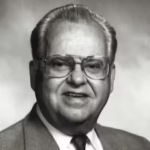The exciting days when God worked with fire and God’s servants worked with faith appear to be gone. Elijah’s day was exceptional in that he ministered with boldness and the blessing of God was upon him. He prayed, God answered. He preached, people responded. He acted, kings trembled. He worked, fire fell from heaven.
Today our books on preaching and pastoral theology stress such things as marketing, meeting people’s needs, programming the ministry, multi-staff management, mission clarification, organizing for action, interpersonal relationships, financial skills, personality traits of leadership, and similar subjects. These are not wrong, but perhaps placed at the wrong end of a priority list. Not one contemporary book in my library on pastoral theology or church leadership makes any mention of the need for heavenly power to do the work of God. Does the power of God lie in programming or in prayer? Is the enablement of God upon a ministry directly related to management or meaningful commitment to the Word of God?
Certainly we can agree that God has not changed from Elijah’s day. While it is true that the world has changed with each succeeding generation, it seems to me that there are certain principles of ministry illustrated by Elijah that are essential to the power of God upon our ministry. If we desire the fire of Elijah, we may have to have the faithfulness of Elijah to the things of God.
The power of Elijah was primarily reliant upon his association with God. He is first seen in 1 Kings 17:1, and it is here that we hear his name for the first time. ELIJAH means “Jehovah my strength,” or “God is my power.” His power was not from personality development, program expertise, or polished pulpit skills, even though he may have possessed all of these. There is a distinctiveness to his name that indicates his complete dependence upon the power of God. His name means more than simply “God gives me strength or power,” for my ministry. There is no power within himself to do the work of God other than the power that comes from the presence of God.
This same principle is seen when observing New Testament church leaders. The power for preaching, witnessing, church administration, and church planting was all related to the indwelling of God’s Holy Spirit. When the Holy Spirit filled the leaders and the church members, things happened that brought great glory to God. A right relationship with God is the beginning place for doing the work of God.
Elijah’s power was also related to his accountability to God. He introduces himself in 1 Kings 17:1 as standing before the living Lord God. His credentials for serving were authorized by heaven. His credibility for serving was a position in the presence of God who sent him. But, standing in the presence of God to serve Him is also a clear picture of divine accountability for his ministry. When Paul challenged Timothy to “preach the Word” (2 Timothy 4:2), it was because he was charged before God and the Lord Jesus Christ to do just that. Service in the church is to be performed with a sense of God’s commission and also of accountability to God. Nothing will put the fire of earnestness, excitement, and enthusiasm into our serving God like the realization that we serve under the scrutiny of His holy eyes.
Priority in our service must begin where Elijah began if we are to have the power Elijah had. There are no substitutes for association with God and serving under accountability to God. The fire of God is clearly identified with faithfulness to God’s call and commission. I personally long for a ministry marked by open heavens, bold proclamations of God’s Word, frightened politicians, and fire from God confirming His messenger.

Dr. Elvin K. Mattison
Dr. Elvin K. Mattison (Ph.D., Wayne State University) was a distinguished pastor, educator, and theologian with a profound commitment to ministry and theological education. Dr. Mattison dedicated 22 years to pastoral ministry in Michigan and Connecticut before transitioning to academia. He served as a professor at institutions including Spurgeon Baptist Bible College in Mulberry, Florida; Northwestern Baptist Seminary in Tacoma, Washington; and Faith Baptist Bible College and Theological Seminary in Ankeny, Iowa.
His international influence extended through teaching pastors at the doctoral level in India and South Korea. Known for his beautiful Irish tenor voice, he recorded an album titled "Songs of the Savior." Dr. Mattison entered glory in 2004.